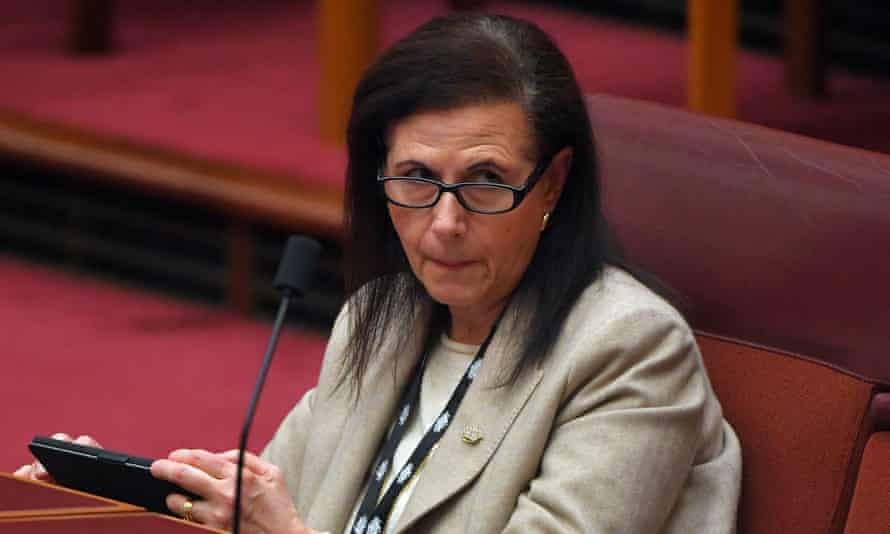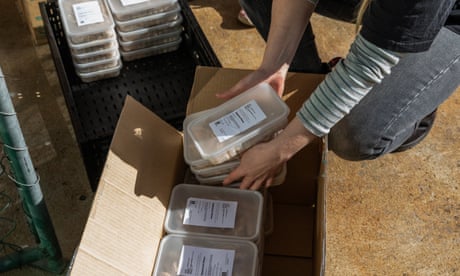Extract from The Guardian
Concetta Fierravanti-Wells fears the regulations could curb political protest and freedom of speech.

Liberal senator Concetta Fierravanti-Wells has written to minister Michael Sukkar seeking a response to a range of concerns about new charity regulations.
Last modified on Sat 17 Jul 2021 06.02 AEST
A Coalition-chaired committee has raised concerns about the Morrison government’s crackdown on charities suggesting the new regulations could curb certain types of political protests and freedom of speech.
In a newly released letter, the conservative Liberal senator Concetta Fierravanti-Wells also says the government has been too vague in explaining what sorts of offences could lead to charities being deregistered.
An alliance of more than 30 charities welcomed the intervention, with Tim Costello saying it sends “a clear signal that these laws are unprecedented and an unjustified regulatory overreach”.

Late last month, the government said it would press ahead with new regulations to expand the types of offences for which charities could be deregistered, prompting the sector to raise fears the crackdown could silence their advocacy work.
Under the changes, which the government says will reinforce trust and confidence in the sector, the regulator would be empowered to investigate charities engaging in or promoting serious unlawful acts of trespass, vandalism, theft or assault and threatening behaviour.
This will apply regardless of whether they are classified as an indictable offence or the less serious category of summary offences under state and territory laws.
Charities will be prohibited from using their resources – including social media accounts - to “actively promote” others to engage in unlawful activities.
Fierravanti-Wells has written to the assistant treasurer, Michael Sukkar, seeking a response to a range of concerns, including the potential effect on the implied freedom of political communication in Australia.
Fierravanti-Wells is chair of the parliamentary committee that monitors how ministers are making use of their powers to issue regulations.
In her letter to Sukkar on behalf of the committee (PDF), she says while the government has provided some examples of the type of offences to which the rules may apply, “it is unclear what the full scope of the offences may be”.
“The committee concerns are particularly amplified noting that the discretionary powers to be exercised by the commissioner may relate to the determination of whether a criminal law has been breached,” Fierravanti-Wells writes.
Similarly, she says, the government has not provided information about whether the measure “may limit registered entities’ implied freedom of political communication, by preventing them from engaging in, or supporting certain activities”.
“This may include limiting their ability to engage in, or support, certain types of political protest,” she writes, without making any assessment as to whether the regulations are constitutional.
Fierravanti-Wells asks Sukkar to explain by 28 July “how the instrument is compliant with the implied freedom of political communication, and whether the explanatory statement can be amended to include this analysis”.
Costello, the chair of the Community Council for Australia and former chief of World Vision Australia, said it was “heartening to see that this important committee shares the concerns of charities from across the sector, which have formed a broad alliance to condemn these egregious regulations”.
“Giving the charity commissioner power to shutter a charity for a minor offence by a member is the equivalent of the electoral commissioner having discretion to deregister the Liberal party because a party member damages someone’s lawn when putting up a sign,” Costello said in a statement on Friday.
Dr Cassandra Goldie, the head of the Australian Council of Social Service, said a healthy democracy was “one where communities and their charities are free to speak up and act in the interests of the people they represent and serve”.
The government argues charities will still be able to participate in advocacy activities “provided they are consistent with their charitable purpose and conducted lawfully”.
Sukkar has said the new governance standards ensure “charities that misuse and take advantage of their status to take part in or actively promote illegal activity can be stripped of tax concessions and other benefits”.
In a separate move affecting the charity sector, the government on Friday released a consultation paper to pave the way for a new voluntary code “to improve the transparency around the use of charitable donations during natural disasters”.
Sukkar said the Black Summer bushfires had “demonstrated that without transparent communication from charities there can be a mismatch between the expectations of donors and how their funds are used by charities”.
No comments:
Post a Comment